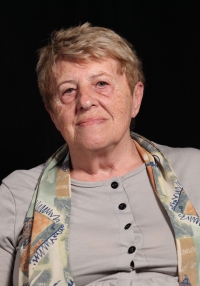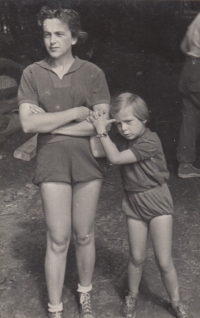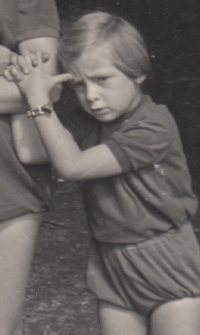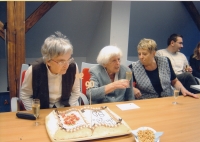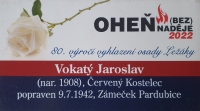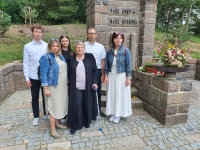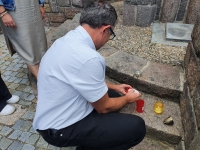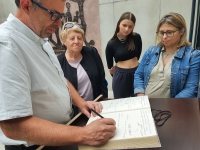Dad was brought in by the Gestapo, he stroked us and we never saw him again
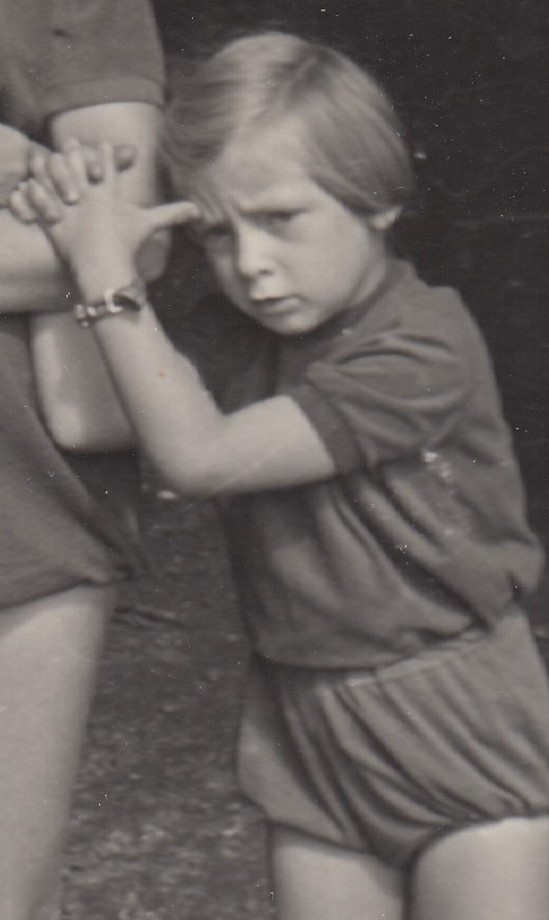
Download image
Hana Bedrníková was born on 16 May 1937 in Prague and spent the first year and a half of her life with her parents Pavla and Jaroslav Vokatý and her older brother Vladimír in Trutnov, where her father worked at the post office. In 1938, her father was mobilised and her mother had to leave Trutnov with her children in haste after the occupation of the Sudetenland. Friends from Sokol found them accommodation in Červený Kostelec with a local butcher. Father Jaroslav Vokatý continued to work at the post office. He was active in the resistance organization S21B, which was involved in hiding the paratroopers from Silver A. However, the Gestapo discovered the group during the period after the assassination of Heydrich and after a series of arrests they came for Jaroslav Vokatý on 1 July 1942. A week after the end of martial law, on 9 July 1942, he was executed together with his resistance colleagues at the Zámeček in Pardubice. The family was left without resources, but until the end of the war they were supported by people from the Sokol organization. After the war, her mother remarried to Jindřich Marek, a member of the Western army during World War II, who was then persecuted for his past and fully rehabilitated only after 1989. Hana graduated from the Trutnov grammar school, but she was not admitted to university. She was active in sports, excelling especially in ball games. She married in 1958 and moved with her husband to Hradec Králové in 1964, where she worked at the intercity telephone exchange. She divorced in 1968 and had two children from her second relationship. After her maternity leave, she joined the telegraph exchange as a manager. She retired in 1991. In 2022 she was living in Hradec Kralové.
